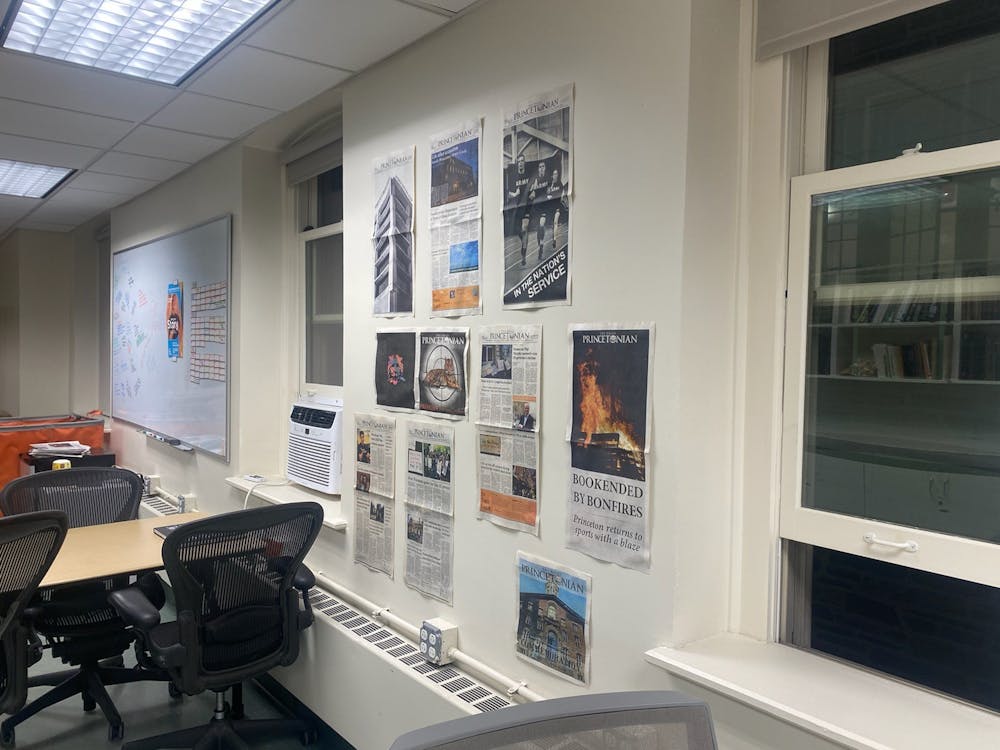To the Editor:
Earlier this week, I wrote a satire article weighing in on the referendum calling on the University to boycott Caterpillar Inc., the world’s largest construction equipment manufacturer. Some people loved it. Others didn’t. I’d be the first to admit, it wasn’t that funny.
In a response published soon after, former Managing Editor AG McGee and Editorial Board Chair Rooya Rahin argued that my piece “demeaned and devalued sizable subpopulations of the University community.” Without much explanation, they assert that the article actively harms ‘Prince’ readers.
These characterizations are not just wrong. They also, while well-intentioned, imply untenable standards for the Satire section and ‘Prince’ at large that would stifle the production of valuable content.
McGee and Rahin are right about one thing: words can cause harm. I am no free speech absolutist. I recognize the ways in which offensive and demeaning language can inflict psychological and emotional harm on community members. I believe firmly — despite satirically arguing otherwise in the past — that the ‘Prince’ should hold high standards for what it publishes and should seriously consider these harms.
However, a campus publication ought not censor everything that might cause some level of offense or discomfort. Doing so would prevent the paper from addressing important issues and defeat the purpose of satire at large.
Satire is an important literary form that serves a distinct purpose at the ‘Prince.’ The News and Opinion sections give readers the facts and perspectives they need to understand an issue. Satire allows writers to approach issues from a completely different vantage point — using humor, irony, and exaggeration to prick the campus’ collective conscience and draw attention to absurdity in the real world.
That was the purpose of my article, a clear critique of an immensely performative Undergraduate Student Government referendum that, in my opinion, made little sense.

As others have aptly pointed out, boycotting an Illinois-based construction equipment company with designated distributors in Israel and Palestine alike does little to assist anyone in the region and would arguably harm the people it intends to help. More broadly, the idea that Caterpillar is responsible and accountable for clear misuses of their equipment is a stretch. If anything, the referendum’s rhetoric — personifying inanimate bulldozers and claiming they are responsible for human rights abuses — shields those actually responsible for abuses from warranted culpability.
McGee and Rahin’s claim that satirizing the Caterpillar referendum “devalues the work of other members of the ‘Prince’” is simply untrue. Much of the debate surrounding the referendum felt like it was missing the point. Proponents of the referendum failed to address clear counterarguments and appeared unwilling to discuss them whatsoever. That is why I chose to weigh in, allowing readers to consider the important issue in a new light while using irony to critique an apparently prevailing view on campus.
McGee and Rahin assert that the satire I wrote harms readers and damages the trust between the ‘Prince’ and its readership but do not point to any specifics within the article, seeming instead to suggest that satirizing anything relating to the Israeli-Palestinian conflict is innately harmful and must be avoided. By this logic, the Satire section should not touch any sensitive issue with a 10-foot pole.
But sensitive issues are often where we need satire most. A cursory look at recent content from The Onion, one of the best-recognized names in satire, reveals a number of articles addressing various deeply serious matters — from the Russia–Ukraine war, to sexual harassment, to mental health, and more. These articles are not entirely inoffensive, but they serve an important purpose: levying pressing critiques of societal folly.

In catering to our readership, the ‘Prince’ should probably draw different lines around what is and is not publishable than the Onion does. But this specific case doesn’t require immense calculus. If my satire piece mocked those suffering in Palestine, for instance, I’d understand the outrage. However, this specific article does not seem particularly controversial. By weighing in on a contentious debate, much like other recent opinion columns, the piece may have ruffled the feathers of advocates for the policy it critiques. But otherwise, nothing within the piece itself is particularly scathing.
I understand where McGee and Rahin’s critique comes from. An impulse to prevent harm is admirable. But in some instances, an excessive instinct to preemptively prevent any harm can unnecessarily censor worthwhile expression. Arguments that the ‘Prince’ should cater its content to the most-easily offended hypothetical reader are faulty; as a community newspaper the organization has an obligation to report and opine on even the most dicey of issues.
People are free to dislike my article, just as they are free to dislike anything on the ‘Prince’ website. I am sure, for instance, that members of the Viewpoint Diversity Task Force, Princeton Open Campus Coalition, and Anscombe Society probably don’t love being satirized by ‘Prince’ writers. But ultimately, there is some value in these critiques, just as there is value in all the ‘Prince’s opinionated content.
People are free to dislike the Satire section’s work and to voice their disapproval within the ‘Prince,’ as McGee and Rahin have. A community publication would be wrong not to welcome criticism on all fronts, especially from two talented journalists who have contributed immensely to the paper’s work. The ‘Prince’ should very well publish McGee and Rahin’s demand for the paper to rethink its Satire section or stop publishing humor content at all.
Giving in to that demand, however, would be ill-advised. Self-censoring by avoiding contentious topics may help the Satire section avoid controversy, but doing so would be a disservice to ‘Prince’ readership.
Zachary Shevin is a post-thesis senior in the economics department with too much time on his hands. He previously served as a Managing Editor at the ‘Prince’ and can be reached at zshevin@princeton.edu.








